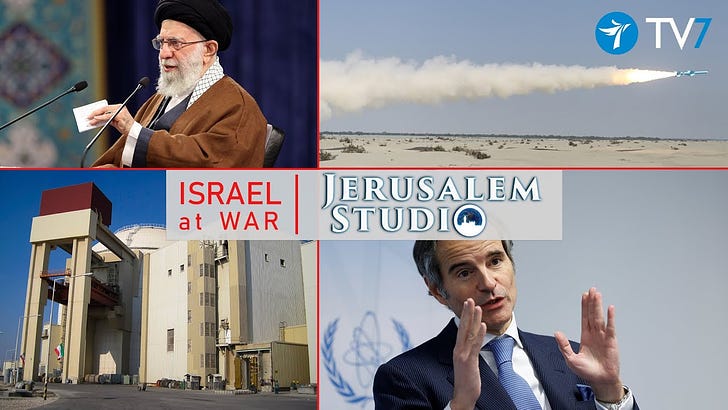Donald Trump has been reelected. As of January 2025, there will be a new sheriff in town and the policy of maximum pressure on Tehran will almost certainly return to Washington, DC. The Iranians know that. They may decide to moderate their behavior. There is, however, another alternative.
The Iranians may go nuclear.
"Trump surely recognizes that his maximum pressure strategy drove Iran to elevate its uranium enrichment from 3.5% to 60% and significantly increase the number of centrifuges," said Mohammad-Javad Zarif, the Iranian President’s strategic deputy and former foreign minister recently. "As a man known for his calculations, he should assess the gains and losses of that policy. It is now up to him to determine whether he intends to persist with this counterproductive approach or to change course," Zarif added.
It doesn’t take a mind reader to understand the point of those comments. This is one of the top officials in the Iranian government making clear that Iran may well decide to respond to increased pressure by playing the nuclear card. He is not the only one making such comments.
“A nuclear test, along with its formal announcement, must not be delayed,” Iranian member of parliament Ahmad Naderi posted on X. His statement came the same day as Zarif’s. It is difficult to believe that is just a coincidence.
Naderi spoke as a video began to circulate widely online showing an intercontinental ballistic missile test in Shahroud, in northern Iran. Iran already has a large arsenal of missiles, but extending their range has obvious strategic implications.
Last month Kamal Kharrazi, former foreign minister and top foreign policy advisor to Supreme Leader Ali Khamenei, stated that Iran possessed the capability to produce nuclear weapons and suggested that, in response to existential threats, Tehran might reconsider the Supreme Leader’s ruling against weapons of mass destruction.
“If the Islamic Republic of Iran faces an existential threat, we may have no choice but to adjust our military doctrine,” Kharrazi said.
Iran is also signaling clearly that it will not limit itself to repetitions of its attacks on Israel if the situation in the Middle East worsens. "The world should know that if the war expands, its detrimental effects will not be confined to West Asia," Foreign Minister Abbas Araghchi said days ago at a ceremony in Tehran honoring the late Hezbollah leader Hassan Nasrallah.
Meanwhile, there are continuing reports of the Iranians moving ballistic missiles into Iraq and placing them under the control of their Shia proxy militias. That dramatically complicates the problem of targeting these Iranian assets. It also suggests the possibility that when and if the Iranians acquire nuclear weapons they might choose to place at least some of them in covert locations outside of Iran.
Assuming the Iranians will sit still and simply wait for a new hardline administration to take power in Washington is a very dangerous thing to do. It is equally dangerous to presume that our intelligence collection on Iran is so robust that we will know in advance precisely when the Iranians will test a weapon. We should also not presume that they intend to proceed in some obvious, transparent fashion giving us time to assess each move and act accordingly.
Should the Iranians decide to deploy nuclear weapons it seems highly unlikely that they will telegraph their moves in such a way as to allow us and our allies to get ahead of them. It seems much more likely that when and if they conduct a test of a nuclear weapon they will simultaneously announce that they have multiple such weapons, they are already mated to delivery vehicles and those vehicles have been dispersed to multiple undisclosed locations.
The implications of such a move would be dramatic. Neither we nor the Israelis could any longer presume to be able to move against Tehran without risking nuclear retaliation. For us, the implications would be enormous. For Israel, they would be existential. Israel is a tiny country. Even a handful of nuclear weapons could render it uninhabitable.
Trump’s election offers hope for the restoration of sanity to America’s national security strategy and foreign policy. It is over two months, however, until he takes office and until then the same America-last, incompetent administration will be calling the shots. That provides one last opportunity for the ayatollahs to move aggressively and change the balance of power before Trump takes office.
We must consider very seriously that Iran will not let this opportunity slip away. We must be prepared for the possibility that we are about to see an Iranian nuclear weapons test.



